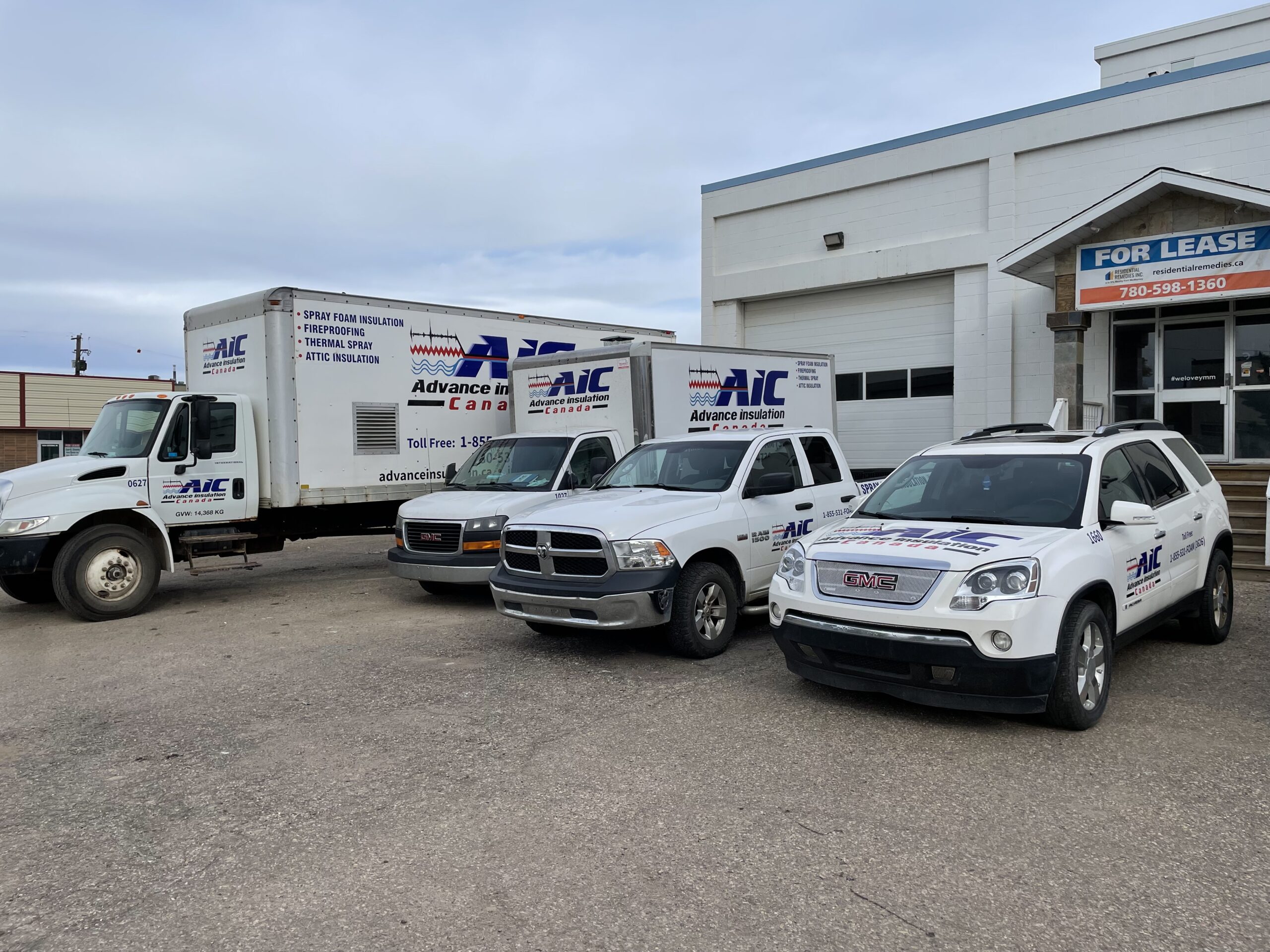Energy costs in Canada are steadily increasing, and businesses are under growing pressure to manage expenses while maintaining efficiency. According to Natural Resources Canada, heating, ventilation, and air conditioning (HVAC) systems account for much energy use in commercial and industrial buildings. Without proper insulation, businesses may experience significant energy loss, leading to higher utility bills and operational inefficiencies.
Insulation is often overlooked in commercial and industrial settings, yet it plays a crucial role in maintaining stable indoor temperatures, protecting equipment, and reducing energy waste. Insulation directly impacts operational costs, employee comfort, and long-term structural integrity, whether it is a commercial office, retail space, manufacturing plant, or warehouse.
This article will explore the importance of commercial and industrial insulation, the key differences between them, and why businesses should invest in high-quality insulation solutions.
What is Commercial Insulation?
Commercial insulation is used in office buildings, retail stores, hotels, schools, healthcare facilities, and other non-industrial structures to improve energy efficiency and indoor air quality. Unlike residential insulation, which primarily focuses on comfort, commercial insulation must also meet building codes, fire safety regulations, and sustainability goals.
There are several types of commercial insulation used in different parts of a building:
- Commercial Roof Insulation – Helps prevent heat loss in winter and excessive heat gain in summer, reducing energy costs.
- Wall & Ceiling Insulation – Maintains stable indoor temperatures and enhances soundproofing in offices and shared spaces.
- Commercial Spray Foam Insulation – Creates an airtight barrier to prevent air leakage, reduce drafts, and improve energy efficiency.
- Pipe & Duct Insulation – Prevents heat loss in HVAC systems and protects plumbing from extreme temperatures.
Proper commercial insulation ensures lower operational costs, regulatory compliance, and a more comfortable environment for employees and customers.
What is Industrial Insulation?
Industrial insulation is designed for large-scale facilities such as manufacturing plants, refineries, power stations, and processing plants. Unlike commercial insulation, which focuses on energy efficiency and occupant comfort, industrial insulation is critical for protecting machinery, reducing heat loss in production processes, and ensuring worker safety.
Industrial insulation is used in various applications, including:
- Pipe & Tank Insulation – Prevents heat loss or gain in industrial piping and storage tanks, reducing energy costs.
- Boiler & Furnace Insulation – Improves thermal efficiency by retaining heat in high-temperature systems.
- Soundproofing Insulation – Reduces noise pollution in factories and heavy machinery areas.
- Fire-Resistant Insulation – Provides an added layer of protection in hazardous environments.
Industrial facilities operate under strict safety and energy regulations, making insulation essential for maintaining compliance, preventing accidents, and improving overall efficiency.
Industrial & Commercial Insulation: Why Businesses in Uplands, BC, Should Invest
- Significant Energy Cost Savings
Energy expenses are among the highest costs for businesses in Canada, especially in areas like Uplands, BC, with extreme weather conditions. High-quality insulation reduces energy consumption by minimizing heat transfer, helping companies to reduce heating and cooling costs.
- Commercial insulation in offices and retail spaces reduces the workload on HVAC systems, leading to lower electricity bills.
- Industrial insulation in factories and warehouses prevents heat loss in pipes and machinery, improving thermal efficiency.
- Commercial spray foam insulation eliminates air leaks, a significant cause of energy waste in large buildings.
- Improved Workplace Comfort & Productivity
Temperature fluctuations can make indoor environments uncomfortable for employees, affecting their productivity and well-being. Poor insulation can lead to hot and cold spots, creating an inconsistent workplace climate.
- Commercial roof insulation prevents heat buildup in summer and excessive heat loss in winter.
- Wall insulation reduces noise pollution, creating a quieter and more productive workspace.
- Industrial insulation helps regulate temperatures around heavy machinery, improving safety conditions for workers.
A well-insulated building ensures a more comfortable and stable environment, leading to higher employee satisfaction and fewer temperature-related disruptions.
- Compliance with Industry Regulations & Sustainability Goals
Businesses in Canada must comply with energy efficiency and environmental regulations, including provincial building codes and sustainability initiatives. Insulation plays a key role in helping companies to meet these standards.
- Energy efficiency laws require buildings to have proper insulation to reduce energy waste.
- Fire safety codes mandate the use of fire-resistant insulation materials in specific industries.
- Sustainability initiatives encourage businesses to lower their carbon footprint through better insulation practices.
Investing in commercial and industrial insulation ensures compliance and improves a company’s environmental reputation, making it more attractive to customers and stakeholders.
- Increased Equipment Lifespan & Reduced Maintenance Costs
Industrial machinery and HVAC systems require stable temperatures to function efficiently. Extreme temperatures can cause premature wear and tear without proper insulation, leading to frequent breakdowns and costly repairs.
- Insulated pipes and ducts reduce condensation and prevent corrosion.
- Thermal insulation around machinery prevents overheating and improves efficiency.
- Commercial roof insulation protects the building structure from moisture damage.
Insulation helps businesses save money on repairs and replacements by extending the lifespan of equipment and reducing maintenance expenses.
- Fire Protection & Enhanced Safety
Many industrial and commercial insulation materials are designed to be fire-resistant, adding an extra layer of protection in case of emergencies. Fireproof insulation slows the spread of flames, giving occupants more time to evacuate and reducing property damage.
- Commercial spray foam insulation can include fire-retardant additives to improve safety.
- Industrial insulation for high-temperature equipment reduces the risk of accidental fires.
- Pipe and tank insulation minimizes heat exposure and prevents hazardous incidents.
Proper insulation is essential for businesses handling flammable materials or operating in high-risk environments for workplace safety and regulatory compliance.
More: Intumescent Paint vs. Traditional Fireproofing Methods: Which One Is Right for You?
Contact Advance Insulation Canada for Professional Insulation Services
Investing in commercial insulation and industrial insulation is a long-term decision that brings significant benefits, from lower energy costs to improved workplace safety. Whether your business needs commercial roof insulation, commercial spray foam insulation, or industrial insulation for machinery and pipes, working with experienced professionals ensures the best results.
Advance Insulation Canada specializes in high-quality insulation solutions tailored to the needs of commercial and industrial businesses. Our team provides expert guidance, professional installation, and energy-efficient insulation materials for long-term durability in Uplands, BC, and beyond!
Contact Advance Insulation Canada today at 1-855-531-FOAM for a free consultation and quote. With the right insulation solutions, you can protect your business, lower your energy costs, and ensure compliance.

